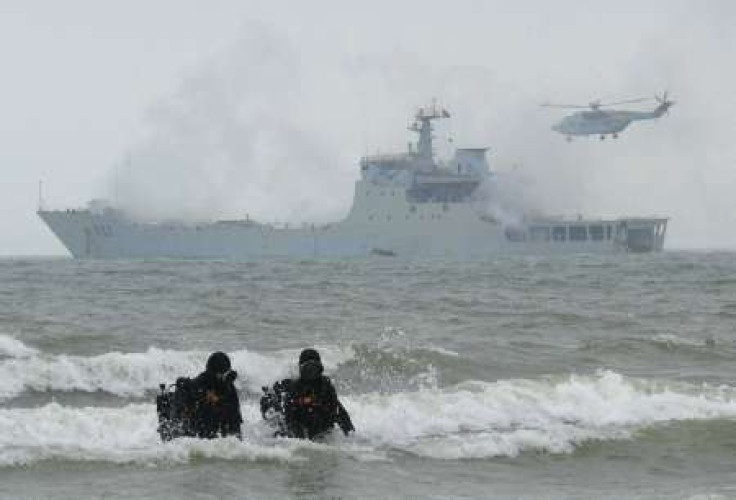Philippine President Rules Out The Possibility Of War With China

China and Philippines have said they won't escalate maritime tensions between the two nations over a disputed shoal in the South China Sea, though both appeared eager to assert their claims over the waters.
Philippines pulled out a warship, replacing it with a coast guard vessel, to de-escalate the situation over Scarborough area off the country's northwestern coast, President Benigno Aquino III said Monday, reported the Associated Press.
Paraphrasing late British Prime Minister Winston Churchill, Aquino said, It's better to jaw, jaw, jaw than to war, war, war, stressing that though his country claims sovereignty, he won't risk armed conflict.
In a joint military exercise, nearly 7,000 US and Philippine forces began South China Sea drills Monday, which, according to a Philippine military spokesman, are unrelated to events at the Scarborough Shoal.
The focus of the exercises would be on improving security, counter-terrorism and humanitarian and disaster response, Major Emmanuel Garcia said, adding that the drill will include combat maneuvers involving the mock retaking of an oil rig, supposedly seized by terrorists near the South China Sea by US-backed Filipino troops.
Beijing has protested the joint exercise although it is happening in a different region, to the southwest of the disputed rocky reefs.
China's growing maritime influence in the region has neighboring nations including Brunei, Malaysia, Vietnam and Taiwan worried over territorial confrontations.
China claims almost the entire South China Sea, including what is recognized by the UN as the Exclusive Economic Zone of other neighbors, according to reports.
The spokesperson of the Chinese embassy in Manila said that despite tensions over the disputed shoal, which the Filipinos refer to as the Panatag Shoal, both sides agreed not to do anything to complicate or aggravate the situation.
The standoff began on April 10, when two Chinese ships thwarted Philippines' effort to arrest several Chinese fishermen accused of illegal entry and poaching near the Scarborough area.
At the heart of the confrontation over the resource-rich region is China's assertion that the islands and waters of the South China Sea, which Manila now calls the West Philippines Sea, was first discovered in the 13th century by a Chinese emperor. Though a Chinese spokesperson recently denied historicity as the reason for the claim, he maintained that China has indisputable sovereignty over all the islands and waters in the South China Sea.
China's position on the South China Sea issue is consistent and clear. China has indisputable sovereignty over islands in the South China Sea as well as their adjacent waters, China's Foreign Ministry Spokesperson Hong Lei said during a press meet on Feb. 29.
At the core of the South China Sea dispute are the territorial sovereignty dispute over some of the Nansha Islands and the demarcation dispute over part of the waters of the South China Sea. What should be pointed out is that neither China nor any other country lays claim to the entire South China Sea. We are not sure whether it is because of their unawareness of facts or it is out of their ulterior motives that some people keep making irresponsible remarks on this issue, he said.
© Copyright IBTimes 2024. All rights reserved.












